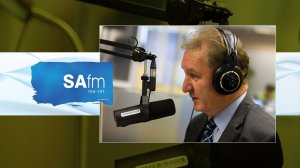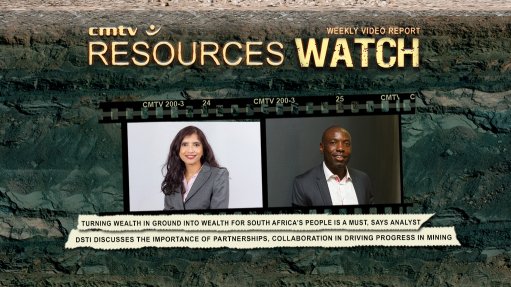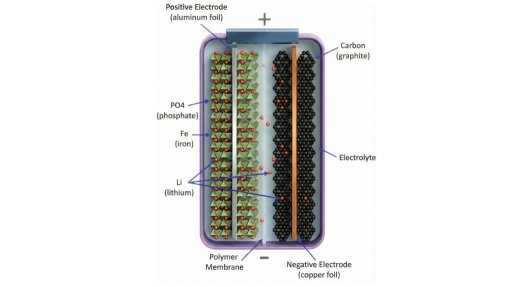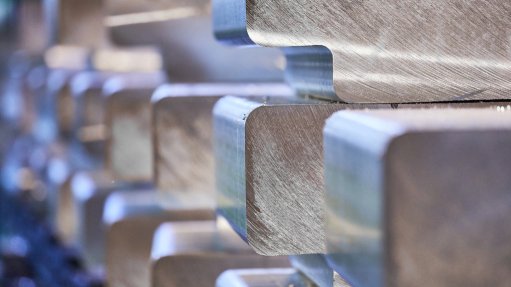On-The-Air (16/07/2021)
Every Friday, SAfm’s radio anchor Sakina Kamwendo speaks to Martin Creamer, publishing editor of Engineering News & Mining Weekly. Reported here is this Friday’s At the Coalface transcript:
Kamwendo: The hydrogen economy will generate 30-million new jobs, a Japanese professor told South Africa this week.
Creamer: This is Prof Hirose, he came through virtually, of course, but he also does a lot of consulting work in South Africa, where we are planning to build fuel cell parts at OR Tambo Airport. In the meantime, he is saying that the Japanese embraced the hydrogen economy many years ago. They look at it holistically, because they feel that society will benefit hugely by switching away from fossil fuels to hydrogen.
He said that they were planning to spend something like $100-billion on hydrogen development and a lot of people thought that was a lot of money. Now, with Covid, you are seeing global stimulus packages to resuscitate the economy post-Covid, being many times that amount, in the trillion dollar range. He is saying what they thought were big numbers are really becoming moderate numbers post-Covid. He calculates the job-generation potential of the hydrogen economy to be 30-million jobs.
He is saying that this is something that the world needs at the moment, what South Africa needs. Although there were other views expressed, because he was speaking at the Nedbank CIB webinar, other views said that we need to be more targeted as well and we don’t need to go for hydrogen all the way, the professor believes that going all the way is the right thing to do to get the full benefit of the hydrogen at a competitive price, particularly green hydrogen being lower in the next decades and to allow it to come in and take over, so that we don't have fossil fuels contaminating the earth and having heat waves in Canada and floods in Germany. We have got to move fast to beat climate change.
Kamwendo: Tin is in huge new demand globally because of the role it plays in the world of electronics.
Creamer: I always used to think of tin as a tin of jam or something that we used to have as containers and as kids we used to play with these tins, as we used to refer to tin cans. But tin has gone a long way since then and is now very deeply involved in electronics. When it used to combine with lead, it had a moderate demand, but now with lead being seen as not good for one’s health, tin has taken over the soldering process in the electronics semi-conductor world totally.
As this develops, you have seen it moving into lithium batteries. You are seeing it getting into far more new technology spaces in the green world, the new technology world. The price has just rocketed beyond the $33 000 per ton range. The world hasn’t been looking for it for a long time. We think of South Africa’s old Rooiberg Tin, which is no longer operating. But some of our fellow South Africans are pursuing tin beyond the South African border, in the region. Anthony Viljoen, of AfriTin, is one of them.
He has pursued what our old State-owned steelmaking company, Iscor, found in Namibia, where it explored for tin. Iscor found a lot of tin at Uis in Namibia and AfriTin has been so fortunate that not only has it got this huge tin resource, and it is huge, one of the biggest, but he has also stumbled upon lithium in the same deposit. He has really hit the high spots there with tin and also lithium.
Kamwendo: Life in mining-dependent countries has improved significantly, a new global study has shown.
Creamer: This study was done by the International Council on Mining and Metals (ICMM) and many of our mining companies belong to this. Involved are 28 global mining companies, such as African Rainbow Minerals, Patrice Motsepe’s company, Sibanye-Stillwater, Gold Fields, Glencore, AngloGold Ashanti and South32. The ICMM conducted a study on people living in mining-dependent countries benefit from mining.
This latest study has indicated that society has actually benefitted hugely by having mining in its resources and society has been uplifted. They said the big thing that you have got to have is governance. Without governance, society fails to benefit. Governance is huge, the study found. There is a lesson in that for South Africa, where concerns abound around the lack of governance in South Africa at the moment. Our Department of Mineral Resources and Energy is having to deal with many more mines that no longer have transparent governance because they are no longer listed. You find that people don't want to list their mines on the stock exchange. They find it is too much trouble and people also don’t have to answer questions when they are out there on their own.
If you go along to the Department of Minerals Resources and you ask how many mines do we have, they will give you a number. When you say who owns all these they will say the mines must tell you. So you don’t even know where to go. We have got 400 commercial operating mines in South Africa but only 41 of them are listed on the Johannesburg Stock Exchange. Those are the big ones, but there are so many more manganese mines, chrome mines and coal mines that we know nothing about. If there is no governance, this is not going to help us, because there is rehabilitation that has to be done going forward. How will you check on all that?
People are saying no, but if they don’t want to list on the stock exchange then they must be made to sign the King Code, which means that they will be audited and checked so that their rehabilitation of the damage they are doing to the earth can at least be looked into and people will be able to examine this publicly.
Kamwendo: Thanks very much. Martin Creamer is publishing editor of Engineering News & Mining Weekly.
Article Enquiry
Email Article
Save Article
Feedback
To advertise email advertising@creamermedia.co.za or click here
Press Office
Announcements
What's On
Subscribe to improve your user experience...
Option 1 (equivalent of R125 a month):
Receive a weekly copy of Creamer Media's Engineering News & Mining Weekly magazine
(print copy for those in South Africa and e-magazine for those outside of South Africa)
Receive daily email newsletters
Access to full search results
Access archive of magazine back copies
Access to Projects in Progress
Access to ONE Research Report of your choice in PDF format
Option 2 (equivalent of R375 a month):
All benefits from Option 1
PLUS
Access to Creamer Media's Research Channel Africa for ALL Research Reports, in PDF format, on various industrial and mining sectors
including Electricity; Water; Energy Transition; Hydrogen; Roads, Rail and Ports; Coal; Gold; Platinum; Battery Metals; etc.
Already a subscriber?
Forgotten your password?
Receive weekly copy of Creamer Media's Engineering News & Mining Weekly magazine (print copy for those in South Africa and e-magazine for those outside of South Africa)
➕
Recieve daily email newsletters
➕
Access to full search results
➕
Access archive of magazine back copies
➕
Access to Projects in Progress
➕
Access to ONE Research Report of your choice in PDF format
RESEARCH CHANNEL AFRICA
R4500 (equivalent of R375 a month)
SUBSCRIBEAll benefits from Option 1
➕
Access to Creamer Media's Research Channel Africa for ALL Research Reports on various industrial and mining sectors, in PDF format, including on:
Electricity
➕
Water
➕
Energy Transition
➕
Hydrogen
➕
Roads, Rail and Ports
➕
Coal
➕
Gold
➕
Platinum
➕
Battery Metals
➕
etc.
Receive all benefits from Option 1 or Option 2 delivered to numerous people at your company
➕
Multiple User names and Passwords for simultaneous log-ins
➕
Intranet integration access to all in your organisation




















